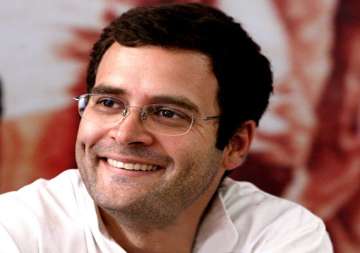Bhadhohi (UP), Feb 7: Congress general secretary Rahul Gandhi today ridiculed BJP's ‘India Shining' slogan, maintaining that those espousing such an idea never visited the poor in the villages and workers and understood their plight.
Launching the second phase of poll campaign in UP, Rahul asked whether top BJP leader L K Advani, UP Chief Minister Mayawati or Samajwadi Party chief Mulayam Singh Yadav ever dined with poor in the villages or held hands of workers, asking them about their well-being in the past five years.
He also chose the occasion to remind people of the political scenario in the run upto the 2004 Lok Sabha elections, saying while there was speculation that Congress would not get more than 80 seats, the party marched forward and BJP that talked of ‘India Shining' lagged behind.
Reiterating the party's plank of inclusive development, the Congress General Secretary said that the “biggest leader” of BJP coined the ‘India Shining' slogan after watching a TV programme.
He said such things are done when one does not interact with the poor, visit the villages and decide living in air-conditioned houses.
“In the last five years, have you seen Mulayam Singh, Mayawati or Advaniji dining with the poor in any village, holding hands with labourers and asking about their plight?” he asked.
Rahul also said that he had learnt more from the labourers and farmers of Bundelkhand than from professors in the US and the UK during his studies. He said that there is a huge difference between what the people at the ground level tell and the thinking of the Planning Commission and the bureaucrats.
“Often Planning Commission people and bureacrats come and say that a particular road is to be built like this. When I listen to you, I feel there is a huge difference in what you say and what they view. There is truth in what you say. Big bureaucrats do not have the knowledge and depth that you have,” he said.
Polling for the first phase of the high-voltage UP Assembly elections for 55 seats in 10 districts would be held tomorrow and will decide the fate of two ministers, 31 MLAs
and 15 former ministers. The elections will be held in seven phases for the 403-seat strong Assembly.
